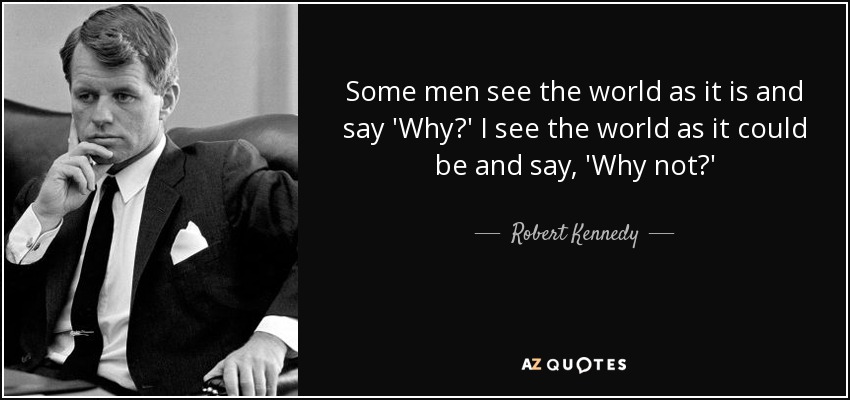Robert (Bobby) Francis Kennedy (November 20, 1925 – June 6, 1968) laid to rest in Arlington National Cemetery, thirty yards from his brother John Fitzgerald Kennedy (May 29, 1917- November 22, 1963). Carved on the marble gravestone appear the words from Aeschylus, that he could recite from memory in his speech on the assassination of Martin Luther King (April 4, 1968):
Robert F. Kennedy, April 4, 1968. C. David Heymann (1998) "RFK: A Candid Biography". William Heinemann.
"In our sleep, pain which cannot forget
Falls drop by drop upon the heart
Until, in our own despair, against our will,
Comes wisdom through the awful grace of God".
Aeschylus (c.525-456 B.C.):
Wisdom comes through suffering.
Trouble, with its memories of pain,
Drips in our hearts as we try to sleep,
So men against their will
Learn to practice moderation.
Favours come to us from gods.
¶ Agamemnon, l. 179
Alternative translation:
"He who learns must suffer
And even in our sleep pain that cannot forget
Falls drop by drop upon the heart,
And in our own despite, against our will,
Comes wisdom to us by the awful grace of God".

"Some men see the world as it is and say 'Why?' I see the world as it could be and say, 'Why not?' ".
Kahlil Gibran (1883-1931):
"Pain is the breaking of the shell that encloses your understanding".
Terry Farrell (Dec 17, 2016):
"Do it what you can and then do it just a little bit more!!".
Want
Spock, "Amok Time", written by Theodore Sturgeon, Star Trek: The Original Series, 1967:
"After a time, you may find that having is not, after all, so satisfying a thing as wanting. It is not logical, but it is true... ".
George Bernard Shaw (1856-1950), “Major Barbara” (1907), Preface:
“The greatest of evils and the worst of crimes is poverty”.
George Bernard Shaw (1856-1950):
“A lifetime of happiness: no man alive could bear it: it would be hell on earth”.
Sir John Vanbrugh (1664-17296), “The Confederacy”:
“The want of a thing is perplexing enough, but the possession of it is intolerable”.
Golden Mean:
Written up in the temple at Delphi by Cleobulus, according to some accouts. Quoted by Plato (380 B.C.) “Protagoras”.
“μηδέν άγαν” (Nothing in excess).
Benjamin Disraeli, Earl Of Beaconsfield (1804-81), "Vivian Grey".
“There is moderation even in excess”.
Charles Churchill (1731-64):
“The best things carried to excess are wrong”.
Samuel Johnson (1709-84), "William Cooke’s Life Of Samuel Foote":
“Love is the wisdom of the fool and the folly of the wise”.
Samuel Johnson (1709-84), "Butler":
“The great source of pleasure is variety”.
Marie Lloyd (1870-1922), Title Of Song:
“A little of what you fancy does you good”.
Alfred Lord Tennyson (1809-92):
“Household happiness, gracious children, debtless competence, golden mean”.
Terence (190-159 B.C.):
“Id arbitror Adprime in vita esse utile, ut nequid nimis” (My view is that the most important thing in life is never to have too much of anything).
| 










